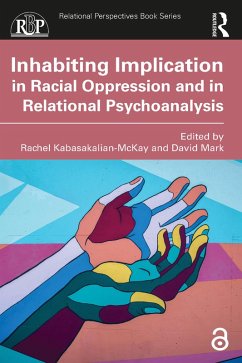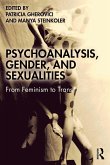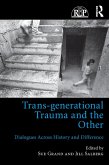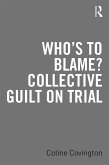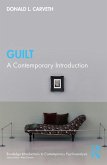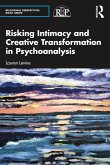Dieser Download kann aus rechtlichen Gründen nur mit Rechnungsadresse in A, B, BG, CY, CZ, D, DK, EW, E, FIN, F, GR, HR, H, IRL, I, LT, L, LR, M, NL, PL, P, R, S, SLO, SK ausgeliefert werden.
Hinweis: Dieser Artikel kann nur an eine deutsche Lieferadresse ausgeliefert werden.
Francisco J. González, personal and supervising analyst, co-chair of Community Psychoanalysis Track, Psychoanalytic Institute of Northern California; staff psychiatrist, Instituto Familiar de la Raza
'This is a book for our moment. Rachel Kabasakalian-McKay and David Mark and their colleagues have put together a collection of essays that are deeply and sensitively engaged with the myriad crises that define us - especially the crisis of racism, in the context of contemporary relational psychoanalysis. While diverse in their perspectives, the essays are united in taking up both socio-political injustices and intimate psychic dynamics: they powerfully combine emotional vulnerability and theoretical savvy. Whether focused on geopolitical conflicts or familial trauma, structural racism or the structures of educational and psychoanalytic institutions, this book helps us understand what it feels like to live in - and think through - complex forms of personal and political responsibility.'
Michael Rothberg, author of The Implicated Subject: Beyond Victims and Perpetrators
'This is a powerful and exceptional collection of essays and articles that the editors, Rachel Kabasakalian-McKay and David Mark, have astutely assembled and one that I highly recommend. In inviting their authors to address and integrate Michael Rothberg's lens of the 'implicated subject and complex implication' they have assembled what will be an indispensable text for the field, both for training in psychoanalysis and for clinicians before and after their training. These authors, who write from a myriad of subject positions, advance how the social, historical/political, racial, cultural, class/caste, and genders/sexualities necessarily can and must be fully integrated into psychoanalytic theories and praxis. These writers offer compelling examples and experiences that prove that no one is outside of regimes of oppression and privilege, and neither is psychoanalysis nor the training institutes. After reading each chapter I am left with immense gratitude for the deep and thoughtful work that has been done and inspired to make sure this work continues.'
Jill Salberg, faculty and supervisor at the NYU Postdoctoral Program in Psychotherapy and Psychoanalysis

